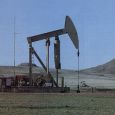The Gift of South Dakota
Subscriptions to South Dakota Magazine make great gifts!
Subscribe today — 1 year (6 issues) is just $29!
Keystone: Increasing America's Energy Security
Sep 12, 2011
Environmentalists don’t like petroleum. They have prevented drilling in the Arctic National Wildlife Reserve for decades. They oppose offshore drilling because it threatens the oceans. They don’t like oil from the Middle East because it is “unethical oil.” It supports dictators. None of those objections, taken separately, is unreasonable.
The proposed Keystone pipeline doesn’t share the same burdens. It would carry about 830,000 barrels of oil a day from tar sands in Alberta to refineries on the Gulf coast. The reindeer seem to be alright with it. There will be leaks, but repair crews can get to them in trucks rather than submersible robots. Canada is an environmentally friendly democracy. Their oil is about as ethical as oil ever gets.
Some Keystone opponents object to the property seizures that will be necessary to complete the project. The pipeline would enter South Dakota at the northwest corner of Harding County and cross the border at the bottom of Tripp County. To be sure, some folks are going to have to give up some of their land and put up with the inconveniences of building a pipeline. That is the kind of thing you have to put up with if you like, say, interstate highways or wetlands protection.
For the foreseeable future, the world economy and our own will continue to run on fossil fuels. Like it or not, we cannot do without oil and bringing more crude to American refineries is a very attractive proposition. Critics of Keystone argue that the oil won’t really benefit the United States because the diesel produced will be sold on the world market.
Even if that’s true, world oil prices have skyrocketed due to increased demand from China and India. Increasing the supply will drive down energy prices and benefit all the world’s economies.
While I do not believe that energy independence is a realistic goal, Keystone will clearly increase America’s energy security. In the event of a disruption in the supply from overseas, Keystone will be one more source of crude that the U.S. can draw on. Oil arriving at refineries we control will be available to us if we really need it.
If Keystone is not built, that doesn’t mean that the oil will remain in Alberta. The Chinese would be only too happy to finance a pipeline running west to supply their growing market. That would not be good for the U.S. Not only would it cost us a critical source of oil, it would substantially decouple Canada’s economy and national interests from the U.S. That would be a disaster. Canada is our closest ally in more ways than one.
The immediate economic benefit to South Dakota is obvious. The benefit to the nation is just as obvious. TransCanada estimates an investment of $20 billion, with 13,000 new jobs and 118,000 spinoff jobs created. This last month, the U.S. economy produced a net job gain of zero. Unless hatred of oil is the only thing you care about, the Keystone pipeline is a no brainer.
Dr. Ken Blanchard is a professor of Political Science at Northern State University and writes for the Aberdeen American News and the blog South Dakota Politics.










Comments
Plus there's the issue of whether they are using the safest possible pipe? And will the Tar Sands oil really help the local market, which you covered above.
I don't really blame TransCanada for the debacle in which they got tax rebates here in SD ... I don't think they ever lobbied very much for them, they just happened to fit into a boondoggle of a program and you can't blame them for taking what they can.
But there are a lot of angles to TransCanada. I wouldn't call the opposition a bunch of oil haters?
While I think that Keystone is obviously a good idea overall, that doesn't mean that I reject any criticisms of the project. If they need better pipe then they need better pipe. I just don't think that this sort of objection is the motive behind most of the opposition to Keystone.
John: Nearly a million barrels of oil a day is nearly 1/80th of 80 million. That is no small amount of energy. Energy independence, in so far as it is a rational goal, means not relying on a few, big sources.